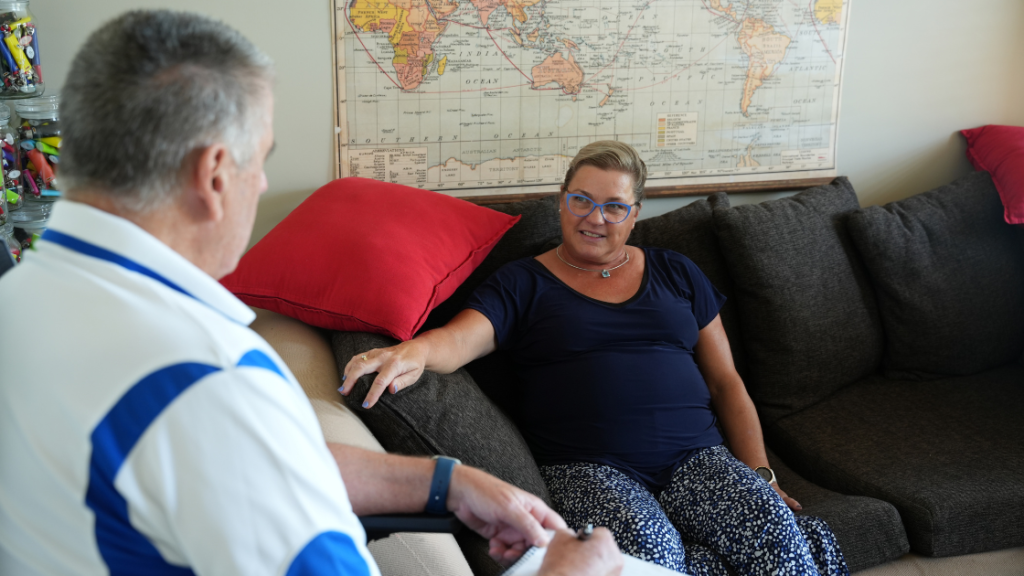If you’re reading this, chances are you’ve been through the wringer with insomnia. Maybe you’ve tried every remedy in the book—medication, herbal teas, meditation, strict sleep hygiene—and yet, that restful night’s sleep remains elusive. It’s frustrating, isn’t it?
I’m Bob Lane, a seasoned hypnotherapist, and I want to introduce you to a different approach: hypnotherapy for treating insomnia.
Understanding Insomnia
Insomnia is more than just a few nights of poor sleep. It’s a persistent condition that can significantly impact your quality of life, affecting your energy levels, mood, and overall health.
Traditional treatments often provide temporary relief but don’t always address the root cause.
The Hypnotherapy Difference
Hypnotherapy works by accessing your subconscious mind, the powerhouse behind your thoughts, emotions, and behaviours. By tapping into this part of your mind, hypnotherapy can help unravel the underlying issues contributing to your insomnia, such as stress, anxiety, or subconscious beliefs about sleep.
How Hypnotherapy Works for Insomnia
Deep Relaxation Techniques: Hypnotherapy begins by guiding individuals into a deeply relaxed state, using techniques such as progressive relaxation, deep breathing, and visualization. This state of relaxation is crucial for individuals with insomnia, as it helps lower stress levels, calm the mind, and prepare the body for sleep. By achieving this relaxed state, clients can break the cycle of stress and anxiety that often exacerbates insomnia.
Subconscious Reprogramming: The subconscious mind holds deeply ingrained beliefs and patterns that can affect sleep. Hypnotherapy targets these subconscious patterns, offering positive suggestions and affirmations to reframe negative thoughts about sleep. This process helps to alter the individual’s perception of sleep, encouraging a more positive and conducive mindset for restful sleep.
Addressing Underlying Emotional Issues: Insomnia is frequently linked to underlying emotional issues such as anxiety, depression, or stress. Hypnotherapy aims to uncover and address these root causes, providing a therapeutic outlet for processing emotions and reducing the impact of these issues on sleep. By resolving these underlying emotional conflicts, individuals can find it easier to relax and sleep better.
Behaviour Modification: Hypnotherapy can also focus on changing behaviours that contribute to insomnia. This includes establishing a healthy bedtime routine, improving sleep hygiene, and eliminating habits that interfere with sleep. Through hypnosis, individuals can more easily adopt these healthy behaviours, leading to improved sleep over time.
Stress and Anxiety Reduction: A significant component of hypnotherapy is its ability to help individuals manage stress and anxiety more effectively. By teaching relaxation techniques and coping mechanisms through hypnosis, clients can learn to lower their stress levels, which is essential for combating insomnia.
Enhancing Self-Efficacy: Hypnotherapy can boost individuals’ confidence in their ability to achieve and maintain good sleep. By reinforcing positive beliefs about sleep and one’s ability to control sleep patterns, hypnotherapy increases self-efficacy, which is a key factor in overcoming insomnia.
Visualization Techniques: A visualization is a powerful tool used in hypnotherapy, where individuals imagine themselves experiencing restful and uninterrupted sleep. This technique helps to prime the mind for sleep, creating a mental pathway that fosters an easier transition into sleep.
Mindfulness and Awareness Training: Hypnotherapy often incorporates elements of mindfulness, teaching individuals to be present and aware of their thoughts and feelings without judgment. This awareness can help break the cycle of rumination and worry that often keeps people awake, promoting a more peaceful state conducive to sleep.
Enhancing Sleep Quality: Beyond just helping individuals fall asleep, hypnotherapy aims to improve the overall quality of sleep. This includes increasing the proportion of restorative sleep stages, reducing nighttime awakenings, and improving sleep continuity.
Long-term Coping Strategies: Finally, hypnotherapy equips individuals with long-term strategies to cope with sleep disturbances. This ensures that improvements in sleep are sustainable, helping individuals manage potential future sleep challenges effect
Success Stories
Many of my clients have turned to hypnotherapy as a last resort and have been amazed by the results. From chronic insomniacs to those experiencing temporary sleep disturbances, the feedback has been overwhelmingly positive. Clients report not only improved sleep patterns but also a greater sense of calm and well-being in their daily lives.
Getting Started
If you’re considering hypnotherapy for treating insomnia, here’s how to begin:
Consultation: Start with a consultation to discuss your specific situation and goals. This is a no-pressure chat to see if hypnotherapy is right for you.
Personalized Sessions: Each session is tailored to your needs, addressing your unique challenges and objectives.
Commitment: While some clients see improvements after just one session, lasting change typically requires a few sessions. Approach this journey with an open mind and commitment to the process.
Why Choose Hypnotherapy?
Hypnotherapy offers a natural, safe alternative to traditional insomnia treatments, with the added benefit of no adverse side effects. It aims to improve sleep and enhance overall mental health, providing tools for managing stress and anxiety more effectively.
Choosing hypnotherapy for insomnia presents a holistic and non-invasive option that stands apart from conventional treatments. Unlike medication, which may come with side effects or dependency risks, hypnotherapy taps into the natural healing potential of the mind, fostering deep relaxation and addressing the psychological roots of sleep issues.
This approach not only aims to enhance sleep quality but also contributes to overall mental wellness by equipping individuals with strategies to manage stress and anxiety, promoting a more balanced and healthy lifestyle.
Take the First Step
Tired of tossing and turning? Ready to embrace the restful sleep you deserve? Reach out to book your consultation today. Together, we’ll work to overcome your insomnia, unlocking the door to peaceful nights and energized days.
Remember, the journey to better sleep doesn’t have to be a solo one. Hypnotherapy could be the missing piece in your puzzle, offering a path to not just better sleep, but a better, more balanced life.




